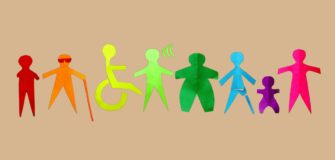Boosting global health training through teamwork
Share
In the era of global interconnectivity, comprehensive global health training has become increasingly crucial. And as health challenges become more complex and far-reaching, transcending national borders and cultural barriers, the need for a multifaceted approach to health education becomes evident.
By fostering collaborative efforts among diverse healthcare professionals, the training can equip individuals with a broader range of skills and enhance one’s competencies. Moreover, it instills a collaborative spirit for addressing and overcoming the modern world’s intricate and diverse health challenges. Such an approach in training ensures a more effective and coordinated response to global health crises, benefiting communities worldwide.
The Role of Collaboration in Health Education
Collaboration lies at the heart of modern health education. When healthcare professionals from various backgrounds and specialisations join forces, they bring a wealth of knowledge and experience. This diverse input can enrich the learning environment, providing a more comprehensive understanding of global health issues.
For example, in international medical missions, teamwork is crucial. These missions often involve professionals from different countries and cultures working together to deliver care in challenging environments. This improves the quality of healthcare delivered and enhances the learning experience for each team member.
Enhancing Skills through Interdisciplinary Training
Interdisciplinary training is a cornerstone of effective global health education. This approach brings together professionals from various health disciplines, such as medicine, nursing, public health, and pharmacy, to learn collaboratively. Doing so promotes a deeper understanding of how different groups interact and contribute to health outcomes.
However, this training goes beyond the clinical aspect, embracing the social determinants of health, which include environmental, economic, and cultural factors. It prepares healthcare professionals to approach health issues holistically, considering the impact of lifestyle, community, and policy on health outcomes. Such training often includes case studies, collaborative research projects, and interdisciplinary seminars, all aimed at encouraging critical thinking and problem-solving skills, which are both essential in the complex field of global health.
The Impact of Technology on Global Health Training
Technology’s role in transforming global health training cannot be understated. For example, digital platforms, e-learning tools, and virtual reality simulations have created unprecedented remote and interactive learning opportunities. These technologies enable real-time collaboration across continents, allowing healthcare professionals to exchange knowledge and experiences with peers worldwide. Meanwhile, online classes and webinars allow practitioners in remote or resource-limited settings to access high-quality education and training.
Furthermore, advanced technologies like AI and data analytics are being integrated into training programs, equipping professionals with skills to analyse complex health data, which is critical in shaping effective health policies and interventions. Virtual reality and simulation technologies also offer a safe environment for practicing clinical procedures and decision-making, enhancing the practical skills of healthcare professionals.
Building Effective Teams for Better Health Outcomes
Effective teamwork in global health transcends merely working together; it’s about synergizing diverse expertise and perspectives. Building effective teams means assembling a group where each member brings unique strengths, whether in clinical expertise, cultural understanding, or innovative problem-solving. This diversity is crucial in global health, where challenges are often complex and multifaceted. Teams that combine various skill sets, from clinical care to health policy analysis, are better equipped to develop comprehensive strategies to tackle health issues.
Additionally, including members with different cultural and geographical backgrounds can enhance understanding and responsiveness to the needs of different populations. Such teams are more adept at creating health interventions that are culturally sensitive and locally appropriate, leading to better health outcomes.
Fostering a Culture of Continuous Learning
In the dynamic world of healthcare, fostering a culture of continuous learning is essential. That said, healthcare teams must commit to ongoing education and development to stay abreast of the latest advancements and best practices in global health.
This commitment can take many forms, including participating in professional development classes, attending international conferences, and engaging in peer-to-peer learning networks. Regular training sessions and workshops can also allow team members to update their skills and knowledge while promoting a sense of community and shared purpose. Additionally, encouraging research and innovation within the team can lead to new solutions or approaches to different health challenges.
By prioritising continuous learning, healthcare teams can further enhance their expertise and contribute to advancing global health as a whole.
Final Thoughts
Boosting global health training through teamwork is beneficial and essential. By embracing collaboration, interdisciplinary training, technology, effective team-building, and a culture of continuous learning, health professionals can be well-equipped to face the challenges of an ever-changing global health landscape. Moreover, professionals can enhance the quality of care provided to patients, significantly improving health outcomes worldwide.




